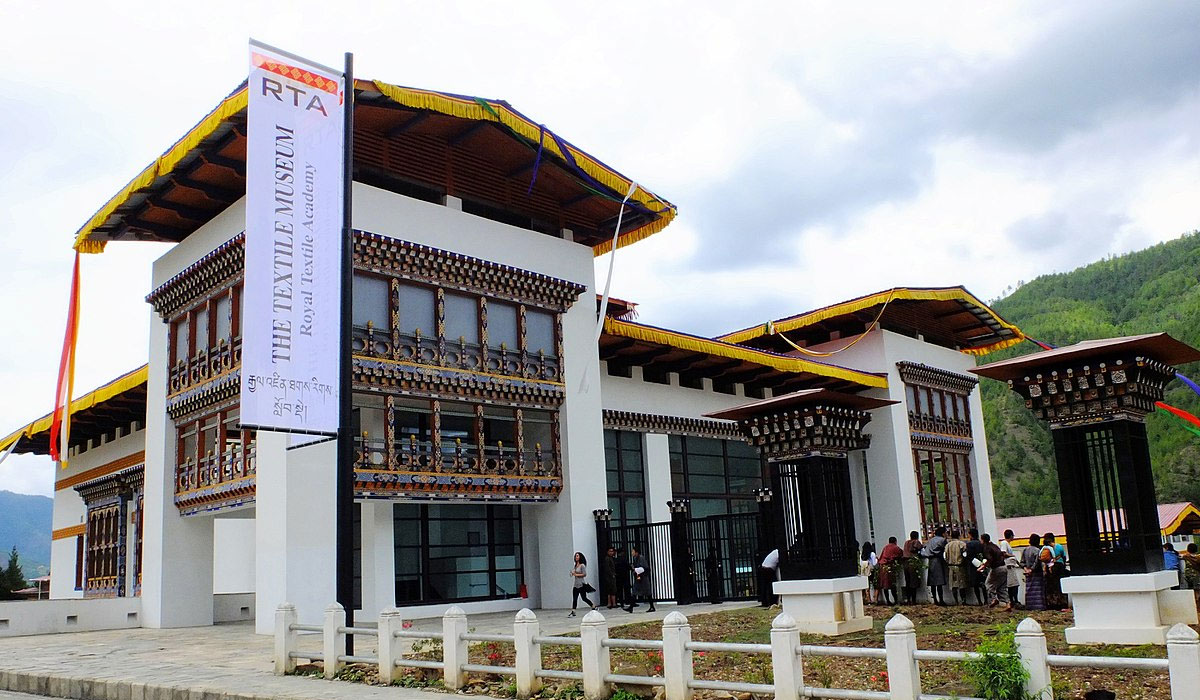
The Royal Textile Academy is a museum and educational institution in Bhutan dedicated to the preservation and promotion of Bhutanese textile arts. It is located in the capital city of Thimphu and is considered to be one of the country’s most important cultural institutions.
The Royal Textile Academy was established in 2005 by Her Majesty the Queen Mother Sangay Choden Wangchuck as part of her efforts to preserve and promote Bhutanese textile arts. The academy features a museum with a collection of textiles from different regions of Bhutan, including antique textiles that date back several centuries.
In addition to the museum, the Royal Textile Academy also offers a variety of educational programs, including weaving classes and workshops, textile design courses, and training in the conservation and restoration of antique textiles. The academy also sponsors research and documentation projects aimed at preserving and promoting Bhutanese textile arts.
One of the highlights of the Royal Textile Academy is the annual Thimphu Tshechu, a religious festival that takes place in the fall and features traditional Bhutanese dance and music performances. During the festival, the academy showcases a selection of its textiles in a special exhibition.
The Royal Textile Academy is an important institution in Bhutanese culture, as textiles are an integral part of the country’s cultural heritage. The academy’s efforts to preserve and promote Bhutanese textile arts help to ensure that this rich tradition is passed on to future generations.
